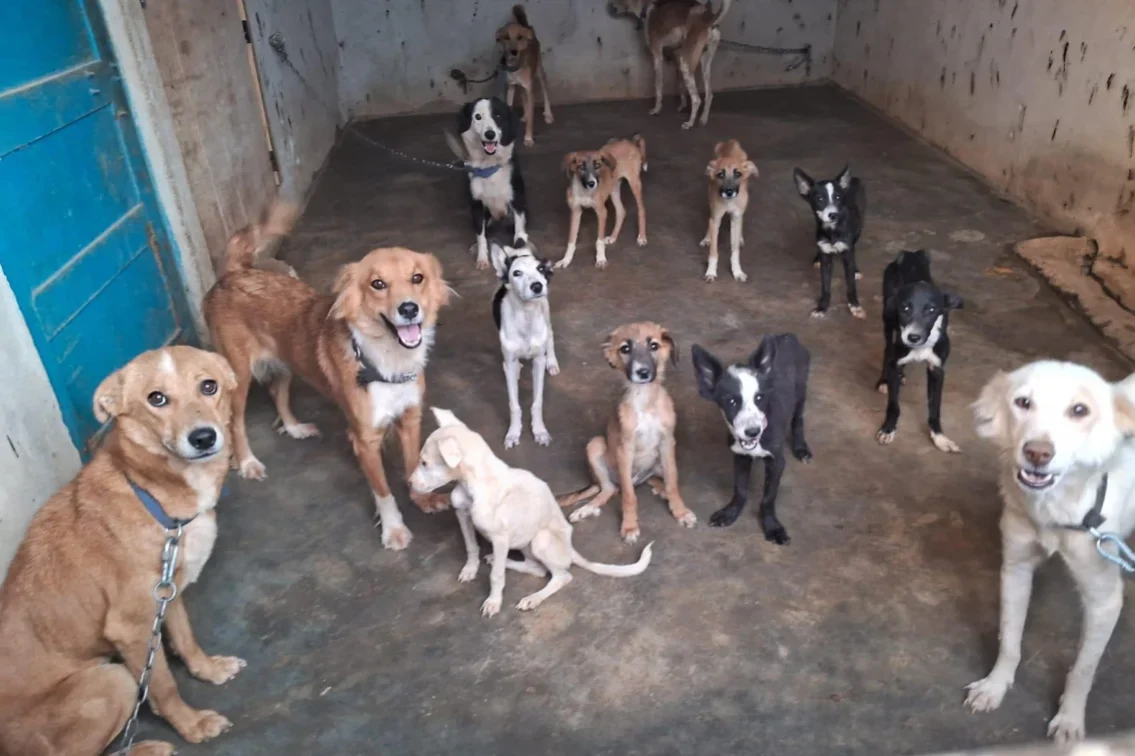Grapes are a common household food item- but should be avoided by dogs as it causes severe poisoning. In short, grapes and dogs cannot get along.
Poisoning from grapes in dogs
Grapes and raisins (dried grapes) are highly toxic to dogs and even small amounts can be fatal. Since they are a common food item the chances of poisoning are high. The exact toxin that causes toxicity has not been identified but it is associated with the flesh of the fruit which means that peeled and seedless grapes are still toxic.
Can dogs have grapes and are grapes bad for dogs?
Grapes and dogs do not mix. For some dogs, even small amounts can be toxic and for others, relatively large amounts may not cause obvious symptoms. In the immediate, medium and long terms toxicity may cause kidney damage and acute (sudden) kidney failure due to lack of urine production (anuria), though all dogs are not equally affected.
Do NOT wait for symptoms to appear. Treat it as an emergency and take the dog to a vet where the dog will be treated for poisoning due to ingestion and kidney failure.
What types of grapes and raisins are toxic to dogs?
All types of grapes are toxic for dogs. Are raisins toxic to dogs as well, and can dogs have raisins, even if it’s just one? The answer is no. Knowing it is dangerous should mean you keep grapes completely away from a dog’s reach! It does not matter if the grapes or raisins are growing organically and are without pesticides – it is what a grape is made up of that harms dogs the most.
Why are raisins, grapes, and black currants toxic for dogs?
The level of grape and raisin toxicity in dogs is very high. There is a lot of debate about why this is so, but scientists do not know for certain. It could be the existence of a chemical in grapes called mycotoxin, which is a toxic fungus. It might also be salicylate, which reduces blood flow to kidneys. All we know for sure is that raisins and grapes are poisonous to dogs and require immediate medical treatment.
Immediate treatment
We do not recommend taking matters into your hands in case of poisoning by grapes or raisins. It is imperative that you take the dog to a veterinarian or an emergency ward as soon as possible. The vet will force the dog to vomit out the grapes as much as possible. Inducing this will take out as much of the toxins as possible, however it might still go into the bloodstream.
If you are far away from a veterinarian, you can also induce vomiting as first-level treatment. However, be careful about doing this if the dog is already unconscious or has trouble breathing.
If the dog is known to have ingested grapes within the last 2 hrs the dog will be treated for poisoning (as described here).
Once the dog is known to be stable the dog will be treated for kidney failure starting with routine laboratory tests, including a complete blood count, biochemistry profile, and urinalysis.
Diagnosis of grape poisoning
Grape and raisin toxicity in dogs will require further diagnostic tests to check for blood levels. You will also be able to tell by the dog’s behaviour, whether it is retching or vomiting.
Diagnosis and symptoms of raisin poisoning
Most of the time you will learn about it from seeing the missing fruit or partially-digested grapes and raisins can be seen in a dog’s vomit or faecal material. Once a dog has ingested any quantity of grapes or raisins the following symptoms will appear:
● Vomiting or diarrhoea
● Lethargy, weakness, unusual quietness
● Abdominal cramping – the dog lies on the side and moans
● Dehydration
● Oliguria (passing only a small amount of urine)
● Anuria (complete cessation of urine)
● Tremors, seizures or coma
How to prevent raisin poisoning
First, keep raisins and grapes out of reach of your dog.
Make family members and others aware of this.
Do not take even small amounts lightly e.g. do not share a raisin flavoured ice-cream etc. with your dog
What other common foods are toxic to dogs?
At this point, you must get it. “Grapes are bad for dogs!” should be a memo on the refrigerator of any self-respecting dog parent. But there are so many other foods that humans can enjoy, but could prove extremely dangerous for dogs. These include, but are not limited to, onions, garlic, alcohol, and chocolate.
FAQs
What happens if a dog eats a grape?
Grapes and dogs do not go well together. If you’re wondering why are grapes poisonous to dogs, the answer lies in the grape itself. Grapes have a toxic element known as Mycotoxin that is known to reduce blood flow to the kidneys. This leads to acute kidney failure in no time. The toxic fungus limits the production of urine and leads to toxic build up within the dog. If you are aware that your dog ate a grape, immediately take them to a veterinarian where they will be treated for poisoning.
Can a single grape kill a dog?
Grapes and raisins are entirely toxic to dogs and can lead to severe kidney problems. It is best to avoid them even in small quantities. If you are looking for dog ate grape home remedy, then start by inducing vomiting. Once you’re successful, immediately take them to the hospital to get treated for poisoning.
How many grapes are dangerous for a dog?
The right answer to the question is grapes bad for dogs is YES. Grapes are dangerous for a dog when ingested directly or as a flavouring in other foods like ice cream or shakes. Even the smallest amount of grape or raisin can be highly toxic to the dog and lead to sudden kidney failure. So it is advisable to be very aware when bringing grapes and ensuring that your dog does not get a hold of them.
Will half a grape hurt my dog?
If you are wondering how are grapes poisonous to dogs, then it it is because of their flesh. There is a toxic element in the flesh of the grape that affects the kidney in dogs and leads to severe complications within a matter of hours. If your dog ingested even half a grape, it is better to take precaution and get it treated rather than wait and lose out on precious time.
Related reading:
Identification & Treatment of Poisoning in Dogs
Identification & Treatment of Renal (Kidney) Failure in Dogs
For more medical, legal, and general advice, visit VOSD.
The information contained in VOSD Vet Advice™ is not intended nor implied to be a substitute for professional medical action which is provided by your vet. You assume full responsibility for how you choose to use this information. For any emergency situation related to a dog’s health, please visit the nearest veterinary clinic.





